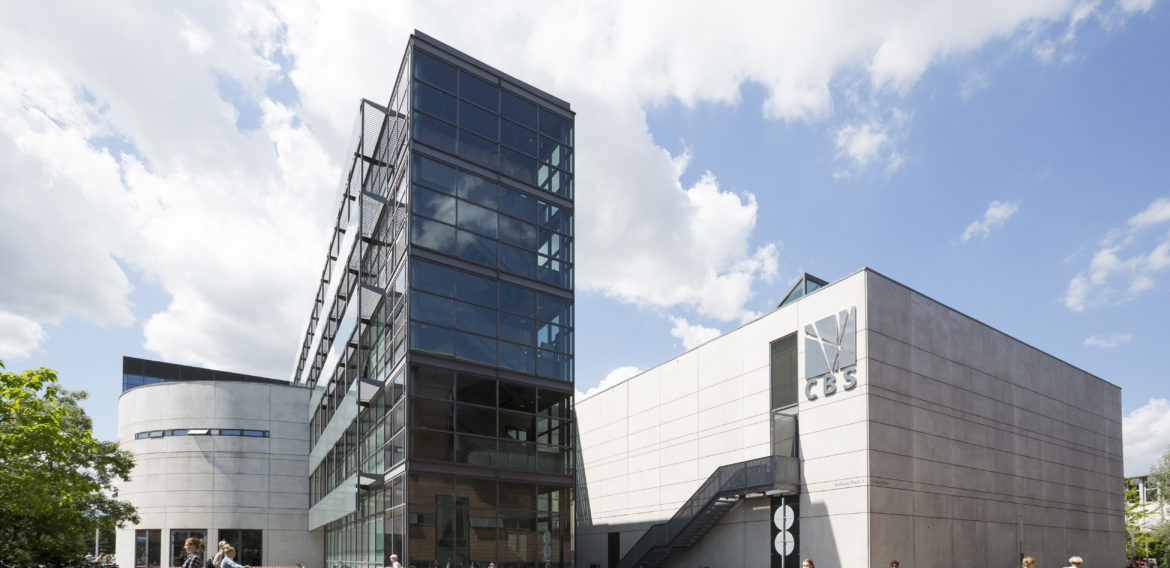Copenhagen Business School
Matthew Harland, Admissions Manager, Full Time MBA, Copenhagen Business School What is the one area of your program that you wish applicants knew more about? The Leadership Discovery Project – from the perspective of alumni who have been out of the programme for some years. This is a brilliant personal leadership journey that fits well with the Scandinavian / Danish hierarchically flat leadership model. It teaches you more about your self and others, that add’s value in making better decisions for yourself in many area’s of life, not just careers – Personal Growth. What’s the single most exciting development, change, or event happening at you MBA program this coming year? No big changes, except for the virtual room – which is an interactive programme for accepted students only. It enables all accepted students to be informed and engaged with the programme prior to commencement, including a platform where students can briefly ‘meet their Professors’. More importantly, the accepted students can commence their Careers journey prior to even arriving at the school whilst taking on self awareness exercises and their initial coaching session – so they are even more prepared on this aspect when they get to CBS. Walk us through the life of an application in your office from an operational standpoint. What happens between the time an applicant clicks “submit” and the time the committee offers a final decision (e.g. how many “reads” does it get, how long is each “read,” who reads it, does the committee convene to discuss it as a group, etc.) Once the student has submitted their application, I will be responsible for reviewing the application in its entirety. This includes their entire written application and also their video essays. I aim to complete a first review within 1 – 2 weeks of submission, and then they will be invited for an Admissions interview if they are successful. The Admissions interview is undertaken by a number of our team members, including the Programme Managers, Rankings Manager and our Director. I am not involved in the interview, so we as a team can make a decision and pick up on the variety of angles that a student portrays and our team see’s. It is very much a team based approach. After the candidate completes an interview, we will revert with a final answer within 1 week. Our applications are ongoing and hence we have a quick turnaround process. Applications are reviewed in it’s entirety at least twice, by myself and the interviewer and then we all make a final review as a team. How does your team approach the essay portion of the application specifically? What are you looking for as you read the essays? Are there common mistakes that applicants should try to avoid? One key thing they should keep in mind as they sit down to write them? We have two written essays as a core requirement for our application. One is related to Responsible Management – a core pillar of our programme and the other is related to how the applicant can leverage our MBA programme in order to achieve their ambitions. The essay’s are useful for many reasons, but some of the most important things I look for is their level of English, structure, relevance to the question and their own honest perspective. There is nothing worse then reading a text book answer on responsible management for example. For most things in life, I believe, there are often no right or wrong answers, just many different perspectives, therefore, I like to learn about the candidatesperspective. There are many good programmes and schools out there, so the second essay question for us, is more so to see if the student can sell our MBA programme to themselves. If this is the case, then they have certainly sold it to us in the form of providing a well-answered essay. It’s clear when the student has INSIGHT about our programme, STRUCTURE and AUTHENTICITY – these are most enjoyable to read ;). Do you have any application tips (for essays & recommendations) for MBA applicants? I think overall, just figuring out a structure, a few key points and to be genuine is all I am looking for. In regards to references – whenever I receive a perfect evaluation from a referee I lose interest: Ask your referee’s to provide a fair evaluation. it’s not a make or break but simply a perspective. It’s not about the highest level of title’s either, but more so the most relevant. For people who can’t get references at ease, i.e. family business and unwillingness to ask a current supervisor, then seek one from a client or customer. Self-awareness, teamwork skills, open-mindedness, cultural sensitivity and the willingness to stick their neck out and learn to lead, make mistakes and grow. GMAT’s are academically important and a great filter, but there is so much more to a candidate’s profile. I am also a believe, that great students have great values, and people with great ambitions have great potential. If I can see this in a student, I’ll put more weight on it. How can a candidate overcome a lower GMAT score? Try again, exercise key strengths in other area’s or get a PhD. I see some GMAT reports sent to our MBA programme where students have attempted a GMAT exam 5+ times over 2-3 years. The effort that is put in pays off most of the time. Candidates are certainly not their GMAT scores either and hence it’s not worth getting beat up over. I’m sure every Admissions Manager can help candidates with a lower GMAT score come up with a plan to move forward. I think people get smarter after the MBA not just before ;). We have a limited number of free passes to help students improve their GMAT with the Economist Tutor. These type of services can also really help candidates make direct improvements to their scores. What resources are available at your MBA program to assist with internship and full-time job opportunities? We have a dedicated career’s team to ensure all candidates can achieve their post MBA ambitions. Therefore, there are limitless resources on this note. We have a 4-month Integrated Strategy Project which is similar to an internship, however, operates in a team of 4 students opposed to being an individual experience. This is our way of enabling students to showcase their leadership, teamwork and problem solving skills to a company in which they work closely with their executive team over the last period of their MBA programme. As for job opportunities, the career team work very close with the students and provide them with all of the necessary workshops, company visits, alumni events, mentoring and coaching services in order to facilitate networking and connections between the right students and the right prospective employers. 
What are the most important aspects of the MBA application process besides GMAT score, prior GPA and current job position?


